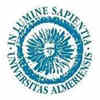澳大利亚麦考瑞大学无线电天文学博士后招聘
澳大利亚麦考瑞大学无线电天文学博士后招聘
Role Overview
The successful candidate will be invited to become part of the Parkes and International Pulsar Timing Array projects and have access to World-leading high precision timing data sets. The primary goal is to detect and study ultra-low-frequency gravitational waves. To do this we need to understand why pulsar timing array data sets are dominated by unexplained noise processes linked with the solar system planetary ephemerides. The successful candidate will interact with pulsar timing and solar system researchers to resolve the physical phenomenon causing this. Expected outcomes directly relate to high precision pulsar timing experiments, gravitational wave searches and in understanding our solar system.
As a joint appointee, there will be opportunities to contribute to undergraduate teaching though Macquarie's physics and astronomy major programs, and to assist with research student supervision via CSIRO and Macquarie’s Masters and PhD programs. The successful candidate will also be encouraged to collaborate more broadly with CSIRO and MQ researchers, and will be mentored and supported in exploring funding opportunities to enhance and develop their research program.
Key Accountabilities:
Under the direction of senior research scientists at CSIRO and Macquarie University the Fellow will:
Use Parkes Pulsar Timing Array data sets to compare the position of the Solar system barycentre with the position predicted by Solar System ephemerides produced by the US, European, Russian and Chinese groups.
Study physical phenomena that could lead to the measured discrepancy in the solar system barycentre and explore related projects such as searching for ‘Planet X’ and placing bounds on gravitational waves.
Collaborate with members of a diverse project team and external partners to ensure research directions can lead to lasting impact in application domains.
Publish results in relevant international scientific venues (high-level journals and conferences).
Communicate effectively and respectfully with all staff, clients and suppliers in the interests of good business practice, collaboration and enhancement of the reputations of Macquarie University and CSIRO.
To Apply
To be considered for this position, applicants must address the Selection Criteria below in a separate document or covering letter and upload the document as part of the application process with their curriculum vitae.
Essential selection criteria:
A doctorate (or will shortly satisfy the requirements of a PhD) in a relevant discipline area, such as Astrophysics, Computing and/or Physics.
The ability to work effectively as part of a multi-disciplinary, regionally dispersed research team, plus the motivation and discipline to carry out independent research.
A record of science innovation and creativity, plus the ability & willingness to incorporate novel ideas and approaches into scientific investigations.
Desirable selection criteria:
Knowledge of pulsar timing array observations, data sets, algorithms, software and data processing
Knowledge of solar system dynamics
Knowledge of Python, C, C++, Julia or similar programming languages
Demonstrated ability to work across multiple research areas – such as pulsar and planetary astronomy.
Other Salary Benefits:
Through CSIRO, a discretionary research/travel allowance will be available, together with assistance with relocation and other benefits, including health insurance.
Enquiries: Dr Joanne Dawson at Macquarie University (joanne.dawson@mq.edu.au) or Dr George Hobbs at CSIRO (george.hobbs@csiro.au)

















